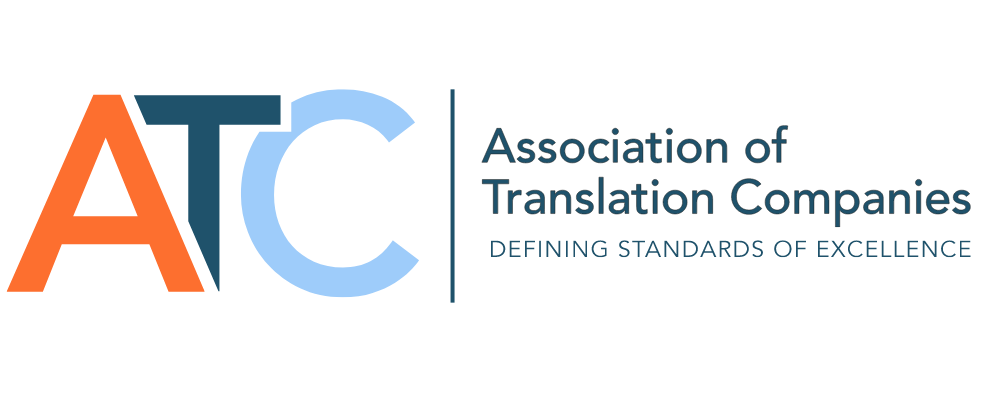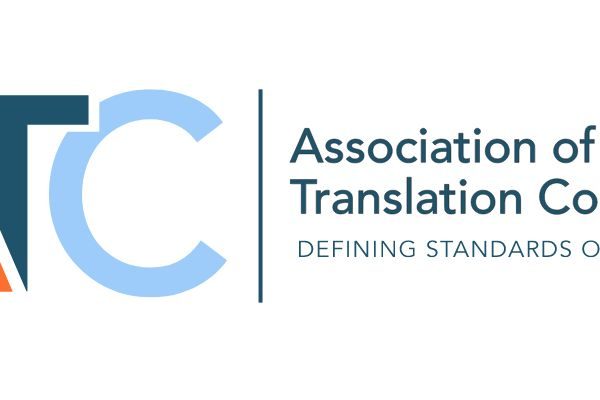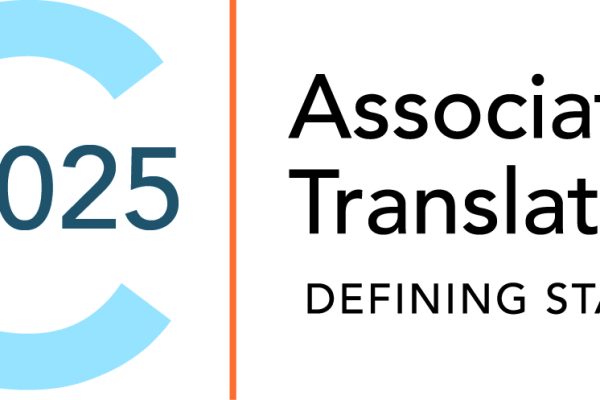The autumn is packed full with engaging, insightful events by the ATC and our global…
ATC Member Cintra Language Services has been awarded certification to interpreting services standard ISO 18841 and legal interpreting standard ISO 20228 by the ATC’s ISO Certification Service.
Cintra is the first company in the UK to be certified to these new ISO standards for interpreting, demonstrating the qualifications and competences of their interpreters and compliance to best practice.
Below, Cintra’s Head of Sales and Marketing Ben Ablett shares their journey with the ATC.
What made you go for certification for these interpreting standards?
Cintra’s mission has always been to deliver the highest possible standards of service to our clients. Given our client base and the nature of the assignments we carry out it is essential that this service is absolutely first class at all times. We are extremely proud of the robust systems and processes that we have built over the years which enable us to maintain such high standards and we have complete confidence in our ability to continue doing so. However, our own confidence alone is not enough. We see ourselves as the benchmark for quality in our industry and we believe that the bar should be set high for the sake of our clients and our Interpreters. For us these ISOs provide an independent third-party verification of just how effective Cintra’s model is and they confirm our commitment to leading the way in delivering a best in class service. The fact that we are the first Interpreting Provider in the UK to be certified to the legal interpreting standard is a fantastic testimony to the dedication of every member of our team and their desire to put not only the client but also the Interpreter and ultimately the end service user at the center of everything they do. We see these ISOs as a badge of honour and one which we will wear with pride.
What benefit do you think certification will bring, to your suppliers?
Certification sends a very clear message to our interpreting community, it lets them know that we’re in their corner, that we value their skills, experience and expertise but that we will also ensure that the importance of their individual value is recognised and appreciated as essential to the service, as without it there is no service.
Our Interpreters have worked extremely hard to reach the point in their careers that they have. They are highly qualified professionals and should be treated, developed, supported and remunerated as such. As Cintra operates as a social enterprise we would never contemplate any change to our business that would be detrimental to our Interpreters and we are fortunate to have strong long-standing relationships with the majority of our interpreting community who understand our values and ethics. However, certification enshrines the importance of the competencies and qualifications of our Interpreters thus providing them additional piece of mind that Cintra has no intention of changing its relationship with its most valuable asset.
More broadly speaking certification protects Interpreters’ best interests as it sets a minimum quality standard which will help to stop the commoditization of the industry. A recent CIOL survey found that downward pressures on prices was a concern amongst the interpreting community, standards such as this will help to maintain rates of pay at a fair and appropriate level.
What about clients?
In the same way that certification reaffirms our core values with our Interpreters it also helps to further build upon the trust we have established with our existing clients. As with our Interpreters, we also enjoy long standing relationships with many of our clients and certification adds to the sense of stability and reliability that they have come to expect from us.
Cintra’s customer retention rates are already very high but adding ISOs such as these makes retaining business more of a certainty. Clients are reassured that they will continue to receive the same high standards they have become accustomed to and a provider that can demonstrate the importance of maintaining quality is seen as a credible and trustworthy partner. Having ISOs in place also helps to support clients when it comes to them auditing suppliers. Auditing the quality of a supplier’s provision can be a challenging exercise, so the presence of an internationally recognized standard can really help.
As for new clients, certification helps to set out what they can expect, it is first and foremost a mark of quality. This can obviously make the decision-making process easier but it goes further than this. We have already seen these standards appear as contractual clauses with new clients, this indicates that they are not only seen as a mark of quality but also as a standard of operating by which performance can be measured. This allows clients to incorporate the standards in to due diligence and contract management therefore streamlining these processes. I personally don’t think it will be long before we see them as a criteria within tenders. As procurers become more familiar with the standards they will invariably be used to help simplify the procurement process too.
Why did you choose ATC Certification Service for your certification?
We had already worked with the ATC on obtaining our certification to ISO17100 and were recently recertified for our second year. We found that working with an organization that understands our market and appreciates the nuances and intricacies of the language industry made a huge difference. In our experience other certification bodies can have a tendency to take a broad-brush approach to how a specific standard applies to a company, a one size fits all mentality doesn’t always work. As such when it came to the interpreting standards the ATC was naturally our first choice.
What was your experience of the audit process?
We were extremely happy with the overall audit process. As mentioned, the industry specific experience of the auditors was a great help and their pragmatic approach made everything feel more like a collaborative exercise. Nonetheless, the process was still reassuringly thorough giving us comfort that the service was fit for purpose and that the principles of the standard would be faithfully upheld.


